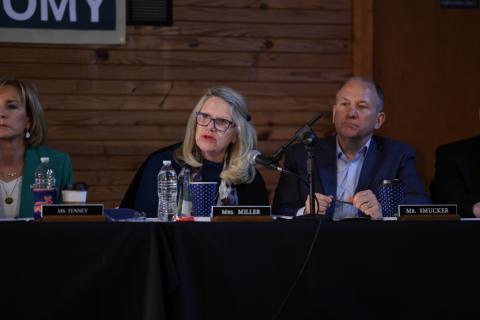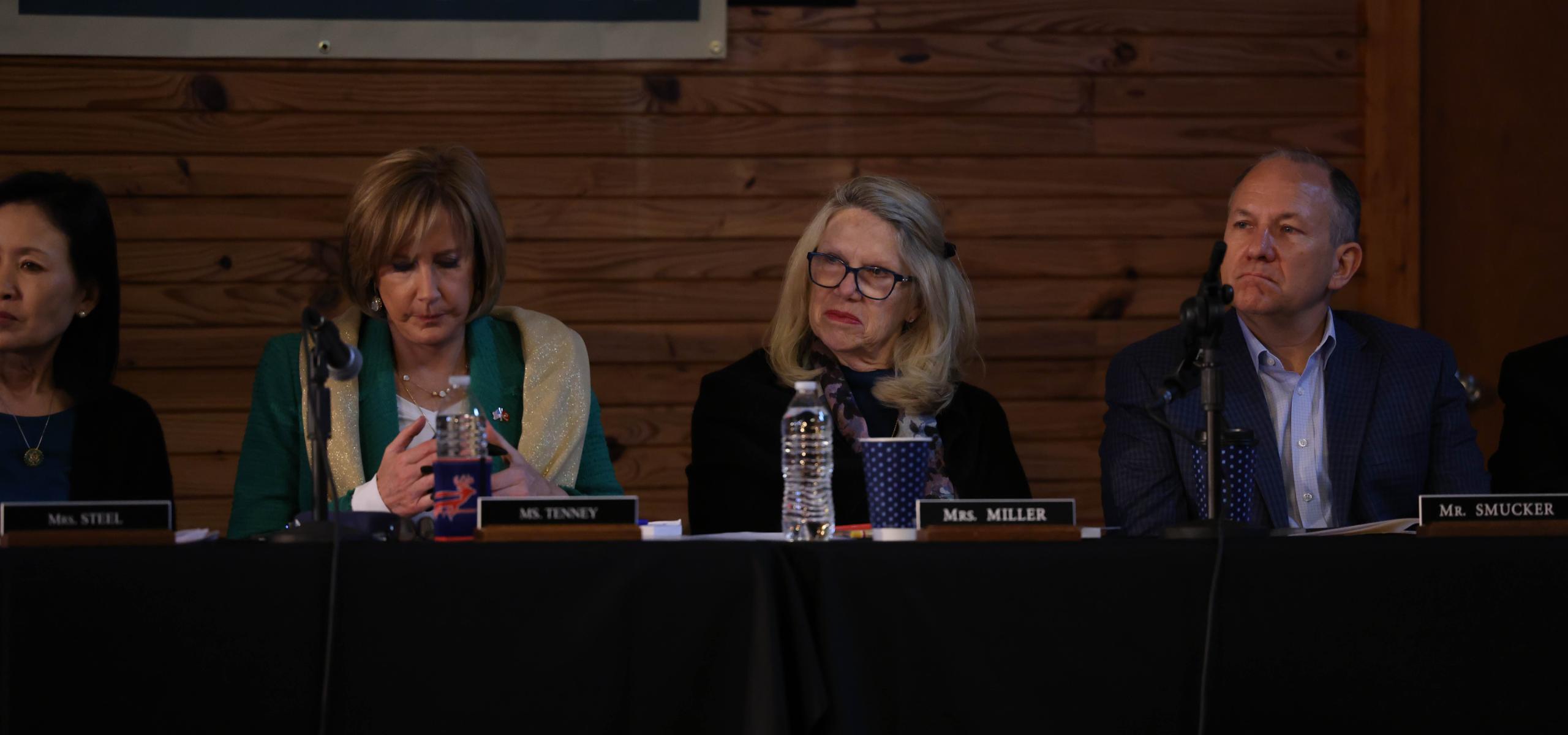Congresswoman Miller Discusses Energy Prices, Inflationary Policies at Ways and Means Field Hearing
March 7, 2023
WASHINGTON, D.C. – Congresswoman Carol Miller (R-WV) traveled to Yukon, Oklahoma with the Ways and Means Committee to hear about the state of the economy in the heartland. In Yukon, Congresswoman Miller heard from small business owners and energy producers on how the inflationary policies coming out of Washington D.C. the past two years have caused increases in food prices, energy costs, and instability for small businesses.
Congresswoman Miller began her questions by asking Mr. Brevetti of Charter Oak production about how higher energy taxes have impacted prices for consumers.
"The independent oil and gas producers are so essential to securing our American energy and our way of life. Without producers like you, it would be much more costly for Americans to keep their lights on, and our cars powered. The Democrats in Congress have consistently used the tax code to discriminate against American energy producers. From attacking deductions for intangible drilling costs to propping up unreliable green energy through billions of dollars of subsidies, Democrats have shown that they are more than willing to pick winners and losers. Can you explain how higher taxes on America's most abundant energy resources like coal, oil, and gas impact the prices for our consumers?” asked Congresswoman Miller.
"Every dollar that you pay in taxes is $1 less you're investing into your business. Our business is very risky, and all ventures don't work. When you put $1 in the ground, you get $2 back, $3 back, or you get none back. So, tentative tax codes do no good. We should be encouraged to take these risks and invest the money. The benefits are twofold - the more hydrocarbons we can produce in this country, the lower the costs are going to be for the consumer and the tax revenues that are going to come from the production of oil and natural gas in our business, but from the taxes that all the workers’ pay that go into the hundreds that are needed for every well that's drilled and completed,” said Mr. Brevetti.
Congresswoman Miller followed up by highlighting the Biden Administration’s negligence in release oil from the Strategic Petroleum Reserve and how that directly hurt small energy producers.
"When President Biden decided to release millions of gallons of oil from the Strategic Petroleum Reserve, in a failed attempt to artificially lower our prices, how can small producers, like Charter Oak, compete against the federal government in pricing oil?" asked Congresswoman Miller.
"That's an outstanding point and a great question because I believe the amount of oil released initially was 180 million barrels and it was followed up with another 23 million barrels this year. That's over a million barrels a day - almost 10% of U.S. production,” responded Mr. Brevetti. "So, it was not for any sort of national emergency, it merely affected the economy, it temporarily drove the prices down. But even if the Strategic Petroleum Reserves are never replaced, that million barrels a day of production is off the U.S. market. So now, the demand hasn't changed so producers have to now come up with that extra million barrels a day. That is probably going to raise the price of oil to all consumers in the U.S.”
Congresswoman Miller pivoted by asking Bryan Jackson, owner of Route 66 Meat Processing, how things have changed since he opened his business.
"You built your business during one of the most challenging economic times our country has faced. Have things gotten better or worse for you since you started your business and what's your biggest challenge?" asked Congresswoman Miller.
"I would say our number one challenge is definitely labor. If I could offer one idea for how to entice people to come to work, it would be offering them hope. That's what we need as a nation is for people to have hope that things can get better. And I think we owe it to each other to share that knowledge of what we've learned. People can walk in the door with zero experience. They can learn some tangible vocational skills, things that we had to learn on the fly that we couldn't go to a school for, and walk away with some real skills they can use somewhere else. That's empowering for people to have that, to know they have hope they can make their life better for their family. We have to have people grow in their jobs and we look at it more as not transactional, but it has to be relational and we benefit from that as a small business to see firsthand people's lives, what they struggle with, and then help as best we can, from our vantage point to make their life better," said Mr. Jackson.
Image

Image

###